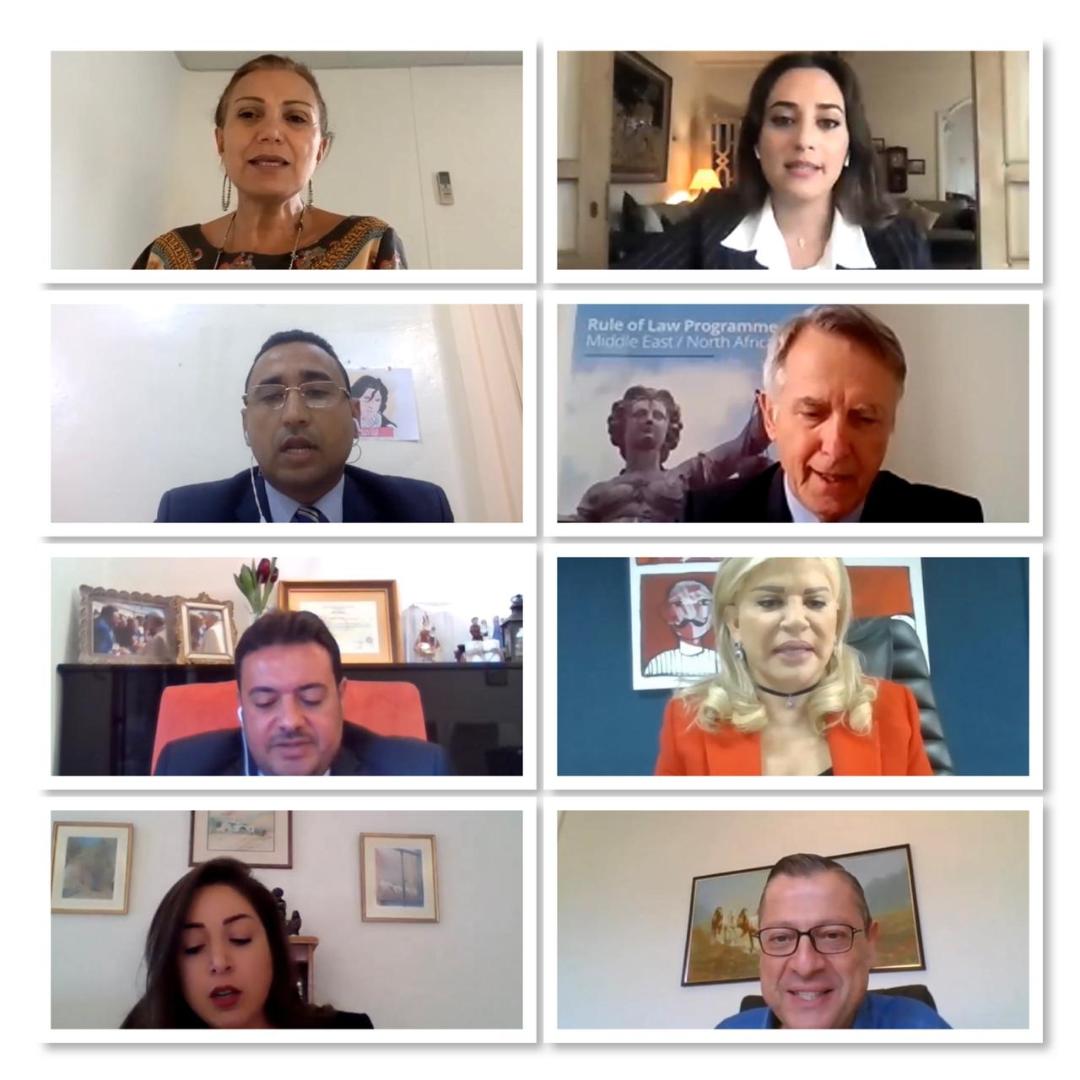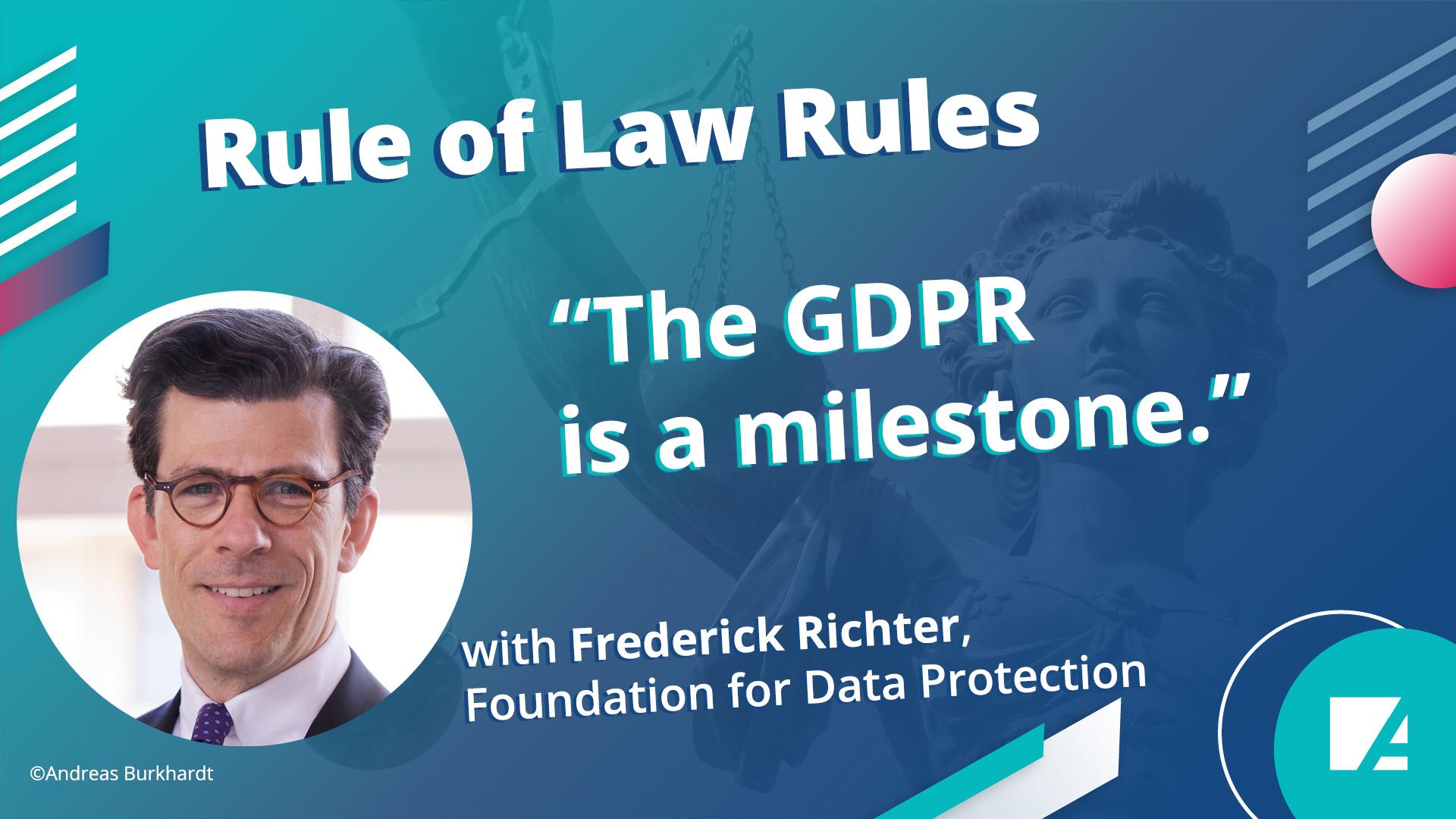In a democratic state, the judiciary develops through the public understanding and trust in the judicial system. In this context, a targeted and appropriate cooperation between the judiciary and print and online media, radio, film and television constitutes a key instrument. It is indeed through the media, that the administration of justice has an impact on the legal community of citizens. For this reason, one of the essential tasks of the judicial authorities includes to actively establish and maintain contact with the media and, within the legal framework, to respond to media and public requests.
On November 25th, 2020 legal experts, lawyers, professors and judges as well as journalists and representatives of media organizations discussed an analysed the current status, challenges and perspective with regard to the relation between media and the judiciary and more particularly in the context of media coverage of judicial affairs. In the course of the two-hour event the panellists shed light on tensions that may occur between the independence of the judiciary and procedural rules, such as the secrecy of investigation, on the one hand and the right to information and the freedom of press on the other hand.
As part of the first panel on Public Relations and the Judiciary - One Winning Combination? Hiba Bridi, Judge at the Lebanese State Council and Dr. Antonios Abou Kasm, Attorney at Law and Professor of International law at the Lebanese University discussed how - from the perspective of the judiciary - the relation between media and courts could be enhanced. While Ms. Bridi highlighted the importance of active presswork by the judiciary itself, Dr. Abou Kassem focused on the legal framework of press freedom and possible limitations thereof. He furthermore gave a legal analysis of the different rights at stake such as the confidentiality of the file and the respect and protection of the legal parties involved as opposed to the public’s right to information.
In the context of the second panel covering the question of Media Coverage of Judicial Proceedings - Best Practices and Journalistic Deontology Dr. Aymen Zaghdoudi, Professor of Public Law at the Faculty of Law and Political Science of Sousse, Tunisia and Ms. Vanessa Bassil, Founder and President of Media Association for Peace (MAP), tackled the question on how to guarantee best practices from media actors while reporting on judicial proceedings. Ms. Bassil emphasized in this regard the significance of media ethics and the professional training of journalists for quality coverage of legal issues as a contributing factor for the rule of law, peace and justice. Dr. Zaghdoudi brought a comparative perspective to the discussions by outlining the new Tunisian legal framework relating to the freedom of the press and the tensions that arose in its implementation between the principle of fair trial and the secrecy of investigations on the one hand and the freedom of press on the other hand.
The online seminar was concluded in its final panel on Justice and the Right to Information for Citizens – What Role for the Media? with interventions from Dr. May Chidiac, Journalists and former Lebanese Minister of State for Administrative Development and Ms. Gisèle Khoury, Journalist and President of the Samir Kassir Foundation. While discussing the role and the responsibility of the media to inform the public on judicial cases and thereby to create a judiciary close to the citizens, the panellists stressed the difficulties stemming from the influence and interference of political and sectarian actors on the media - leading to biased and sometimes even the dissemination of erroneous information.
The well-attended online roundtable was punctuated by a very positive and abundant interaction between participants and speakers, resulting in a roadmap for further investing in media to strengthen government accountability, train journalists to acquire good legal knowledge to adequately inform the public on legal issues while simultaneously developing best practices and codes of ethics consolidating the media's oversight over court cases in Lebanon.
We wish to thank all those involved in the Webinar - speakers and the audience- for their bright and constructive interventions.
Did you miss the webinar? You can watch the full recorded session at: https://mediasite.usj.edu.lb/Mediasite/Play/94e95908b2914835907c56929343073e1d







